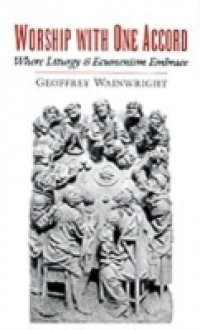The historical course of Christianity in the twentieth century has been strongly marked by the Ecumenical Movement and the Liturgical Movement, and often these currents for the recovery of the Church's unity and the renewal of its worship have flowed together. In this new book, author Geoffrey Wainwright draws on his three decades of active participation in both movements to offer a theologically informed account of what has been at stake in them, what their achievements have been, and what tasks remain for them to accomplish. He shows how the two movements have engaged such issues as the authority and function of scripture and tradition as well as the nature of the Church and sacraments. In this last connection, Wainwright illuminates the convergence represented by the widely received Lima text on "Baptism, Eucharist and Ministry," in the writing of which he played a prominent part. The linguistic and anthropological turns that characterize twentieth-century thought are reflected in the attention given to the language and ritual of worship. The social location of the Church is addressed in chapters that look to liturgical practices for common Christian perspectives on ethics, politics, and culture, so that discords and conflicts may be resolved and reconciled. The book makes its own contribution to the symphony of praise to which the apostle Paul summons Christians and the churches when they will "with one mind and one voice glorify the God and Father of our Lord Jesus Christ."

